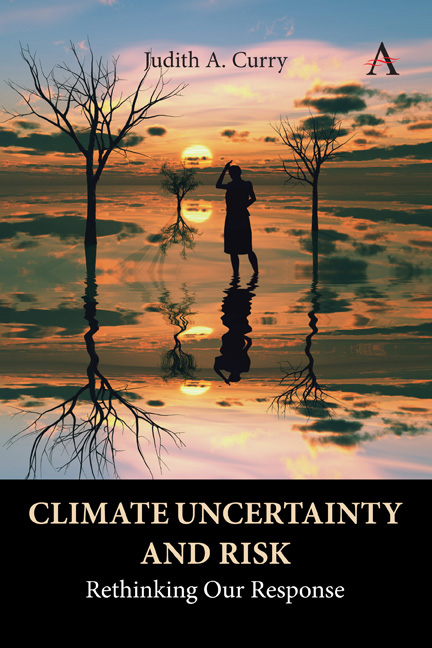Part Two - Uncertainty of Twenty-first Century Climate Change
Published online by Cambridge University Press: 28 February 2024
Summary
“We need both new wine and new bottles—new ideas as well as new institutions to make them vibrant.”
—Philosopher Robert FrodemanThe information available on climate change for policy-making purposes is plagued by large inherent uncertainties. Apart from uncertainties about future emissions, this includes uncertainties in projections from global climate models as well as climate change impacts, economic costs, and policy responses. Additional uncertainties are associated with the technological, social, and political contexts surrounding the policy response options.
Part Two describes a new framework for thinking about the climate change problem. This framework does not attempt to resolve the plethora of problems identified in Part One. Instead, it seeks to bypass most of the existing problems that have contributed to the acrimonious public debate and policy gridlock surrounding climate change.
At the heart of this reframing is a better understanding and accommodation of all aspects of uncertainty surrounding climate change. This new framework moves away from producing consensus science that supports the linear model of “predict-then-act,” to a scientific process that supports a scenario-rich robust decision-making framework. This new framework opens up space for disagreement among scientists and broadens participation to include individuals with a wide range of expertise.
Part Two focuses on plausible outcomes of climate change in the twenty-first century that are relevant to policy making, including natural climate variability plausible worst-case scenarios. This formulation bypasses debates over the historical and paleoclimate data records. It starts the climate change clock in the year 2000, which characterizes the current climate to which humanity has more-or-less adapted. A focus on regional climate variability in the context of local vulnerabilities is regarded to be more important for decision-making than changes in global mean temperature.
This framework for the climate change problem sets the stage for a response framework (Part Three) based on robust decision-making aimed at improving human well-being in the twenty-first century.
- Type
- Chapter
- Information
- Climate Uncertainty and RiskRethinking Our Response, pp. 55 - 56Publisher: Anthem PressPrint publication year: 2023

